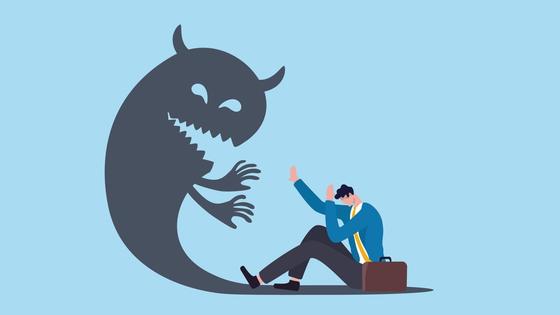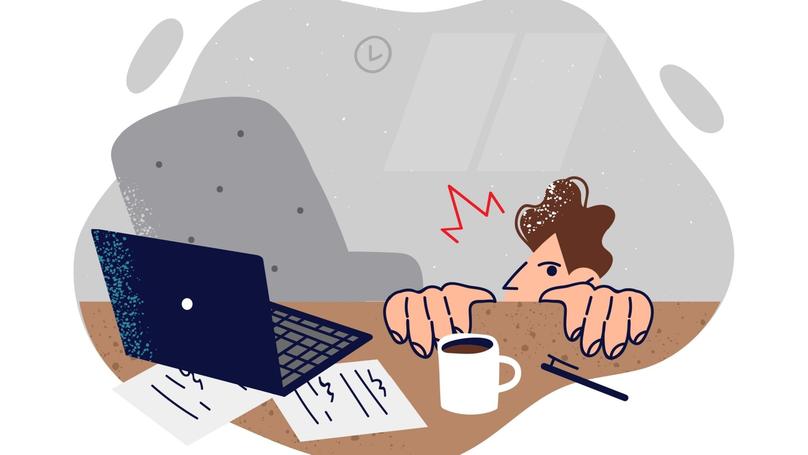FOBO syndrome: How the Fear of Making the Wrong Decision Impacts Your Career
How frequently do you endure the torment of decision-making? Are you afraid of making a suboptimal choice or decision?

If this fear completely paralyzes you, preventing any action and leaving you to merely hope for the best, you are experiencing the FOBO effect. The fear of finding the perfect solution is a rapidly spreading phenomenon of the 21st century. Let's discover how FOBO occurs, its consequences, and whether it is possible to eliminate the effects.
What is known as FOBO syndrome?
FOBO stands for Fear Of Better Options, which refers to the anxiety of making the wrong decision, missing out on the best choice, or selecting an inferior option. Individuals affected by this phenomenon experience a genuine fear of making particular decisions. This feeling intensifies when there are multiple options to choose from. These individuals worry that a more profitable, promising, or valuable opportunity will emerge once a decision is made. Still, it will be too late to take advantage of it.
Therefore, FOBO is not just an occasional syndrome or effect but a persistent mindset that frequently accompanies an individual. Typically, individuals with FOBO live in uncertainty, continually hoping for a better future, rejecting current opportunities, and delaying decisions for as long as possible. They unconsciously squander their internal resources, energy, and time by analyzing various alternative options and postponing their moment of decision. This process is mentally and physically exhausting, yet it yields no results. Likewise, FOBO negatively impacts the individual's life and their surroundings. Someone with FOBO struggles to take on commitments takes a long time to make decisions, and is often incapable of doing so. They are also prone to regretting their choices without valid reasons. They are also highly prone to procrastination, usually leaving their colleagues, employees, and loved ones uncertain.
How FOBO Develops: The Role of FOMO and Information Overload
The development of FOBO syndrome is directly linked to, and even caused by, another phenomenon: FOMO. This is known as the Fear Of Missing Out (FOMO), which refers to the anxiety of missed opportunities. This effect makes people feel as though something important, valuable, and worthwhile is slipping away, causing heightened anxiety and worry. As a rule, the FOMO syndrome, like its friend FOBO, is caused by social networks. This type of content triggers confusion, insecurity, and inadequacy, making us perceive others as more successful, wealthy, fulfilled, and happier.
Consequently, both FOMO and FOBO lead to overexertion, fatigue, heightened anxiety, and a loss of concentration. This stems from the vital need to constantly check messages, scroll through social media feeds, and participate in various events to stay informed about everything happening. While FOMO drives a person to accept every opportunity, try all forms of entertainment, and seize any job, FOBO induces paralysis and prevents decision-making. Another key difference between the syndromes is that individuals affected by FOMO suffer more themselves. At the same time, those around them are more impacted by FOBO.
Consequently, both FOMO and FOBO stem from excessive choices and abundance. These syndromes can be seen as a result of overconsumption and the overwhelming number of alternatives available, that is, a variety of consumer goods and services. When faced with numerous options and having to choose just one, a person experiences not only temporary anxiety but also long-term stress. While these effects are primarily driven by the modern economy, cultural factors, and social status, personality traits also play a significant role. For instance, scientists have discovered that the fear of missing out on opportunities is most commonly experienced by individuals with pronounced neuroticism, meaning they are more anxious, restless, and emotionally unstable. In addition, the scientific community believes the development of FOMO and FOBO is also influenced by feelings of dissatisfaction with one's life, loneliness, and low self-esteem. In this situation, individuals aim to compensate for the absence of closeness and interaction with others, fulfill their need for social connection, accomplish certain goals, and feel worthwhile.
The dangers of FOBO: The consequences

Beyond the well-known effects of anxiety, stress, and depression, FOBO also results in chronic indecision. This manifests as an unconscious habit of continually avoiding decisions, frequently rejecting one's choices, and evading responsibility and the outcome. The consequences of the FOBO effect are as follows:
-
Making bad decisions-Interestingly, the fear of missing out on something valuable and important often backfires, leading people to make poor decisions. Instead of worrying, try to view the situation rationally, analyze all the factors, and make a choice with a clear mind.
-
Constantly growing dissatisfaction with life happens because FOBO causes people to always expect the best, hoping for an even better offer or a more favorable situation, even when things are already going well.
-
Developing chronic fatigue syndrome-FOBO induces stress by compelling individuals to stay constantly informed about all events, seek alternative options, and remain in a perpetual state of decision-making while simultaneously being unable to make a definitive choice.
-
Wasting valuable time-Deliberating over decisions and the fatigue and torment of choice diminish productivity and consume significant time and resources that could be better spent achieving tangible goals.
-
Genuine loss of opportunities-By avoiding decisions and fearing risks and failures, a person with FOBO syndrome never begins implementing their choices, continually hoping for a better time, improved conditions, and superior options.
Do you experience FOBO syndrome: a checklist from Lectera
We've already discovered that FOBO syndrome can impact various aspects of life and can unexpectedly appear in situations where you have to make even the most trivial choices that don't affect your future. To avoid getting stuck and missing out on good opportunities, check yourself for FOBO syndrome. Tick the statements below that you agree with:
- I seldom try new things and consistently revert to old habits.
- My friends' lives are more interesting and fulfilling than mine.
- I often struggle to make choices at the grocery store, so I always buy products from the same brand I've already tried.
- I find it hard to define my clothing style. I spend hours in fitting rooms, unable to choose between something practical and versatile or extravagant and colorful.
- I usually spend my free time at home because I can't decide where the best place to go is.
- Simultaneously, I get very anxious if I can't meet up with my friends and they hang out without me.
- I take the longest at a restaurant to decide on a dish, but I always choose carbonara.
- I still question whether I chose the right profession.
- I have spent a long time searching for a job, contemplating where the best conditions were, until my savings ran out and finding work became an urgent necessity.
- I enjoy re-watching old movies and TV series because I find deciding what to watch next difficult.
- I've kept the same hairstyle for a long time because I can't decide on a new cut or what would suit me best.
- I typically plan my next vacation a year in advance to review all the options and select the best one.
The more boxes you tick, the greater the chance you are susceptible to the FOBO effect. You must consciously work on it to minimize and eventually eliminate its influence.
How to overcome FOBO on your own

Naturally, there are no universal methods or practices for overcoming the FOBO effect, as it entirely depends on the specific situation a person must choose and their personality traits. There's a significant difference between being unable to decide which movie to watch and choosing a profession to pursue. However, Lectera experts are ready to share with you some general tips on how to navigate decision-making challenges, tune into your inner voice, and prevent FOBO symptoms:
- Focus on what is important
Regularly reflect on your core values and what matters most to you. Understand your desires and needs, along with the reasons behind them. To consistently make the right choices and avoid regrets, stay focused on what matters to you in the present moment without being swayed by external influences. Knowing and understanding your values will help you narrow down your options, selecting only those that align with what truly matters to you. Keep in mind that every decision you make should move you closer to fulfilling your desires, achieving your goals, and realizing your dreams
- Develop the ability to make quick decisions without regret
In everyday situations with no serious or long-term consequences, it's best to make quick decisions. This approach will save you time and energy while also helping you practice quicker analysis and decision-making.
- Gradually shorten the time you spend making decisions
Try to limit your resources artificially. For instance, shorten the time allocated for making a specific decision. Set a deadline for yourself based on the seriousness of the decision and its potential impact on your life. For instance, you might decide on a dish at a restaurant within ten minutes, but finding a better job could take an entire month. The key is avoiding procrastination and muster the strength to decide.
- Remember to acknowledge what you've already accomplished
Always remain grateful for what you have. Reflect on the journey you've already undertaken, your achievements, and the heights you've reached. You'll feel less pressure to find the perfect option by recalling your achievements.
- Increase your physical activity and socialize more frequently
Social activities and communication can help you view problems from different perspectives, rethink them, and make better decisions. The people around you can offer intriguing ideas that might lead to unexpected choices or open up new horizons. Additionally, physical activity can help reduce stress and clear your mind of unnecessary, bothersome thoughts.
Lectera’s Online Courses by topic
If FOBO syndrome suddenly appears when making important decisions, use the following process:
- Firstly, try to be unbiased. If the upcoming decision significantly impacts your future, avoid choosing the first option without analyzing several alternatives. Maintaining balance is crucial by sensibly evaluating all possibilities, confidently eliminating the least suitable ones, and not looking back regretfully.
- Determine your specific goals, set clear criteria, and define an acceptable outcome. You need to understand your goals and recognize the value of each one. If your decision-making is based on clear criteria, it will simplify. To achieve clarity, it's best to outline your plan in writing. Start by specifying your goal, then list the possible methods to reach it. Finally, establish the criteria for selecting the most suitable choice.
- Rely solely on facts and assessment. Gather all the necessary information and begin analyzing it. Compare the options and predict the potential outcomes of each choice. Ensure that every method you consider for solving a problem aligns with the goals established in the previous stage. If an option fails to meet your criteria at this stage, exclude it immediately and stop considering it further. Avoid revisiting it in the future.
- Utilise a variety of information sources. Based on the complexity of your decision, consider consulting experts or seeking advice and recommendations from impartial individuals. After thoroughly examining the situation and analyzing all the nuances, select the two or three options that best align with your goals.
- Choose one favourite option. Next, compare it with the remaining options and identify which one excels based on a more significant number of criteria.
- Be flexible. If a less favored option proves more suitable after comparison, dare to choose it.
These universal recommendations can also help prevent FOBO, even if you don't typically struggle with decision-making. This process will help you organize the available information, make the most accurate and logical choice, and avoid future regrets.
It's important to clarify that considering options, brainstorming, and conducting detailed analyses are not always symptoms of FOBO. Typically, thoroughly studying information and comparing multiple alternatives enables you to make the right decision, gain more earnings, or derive other benefits. However, it's also crucial to make prompt decisions, take responsibility for their outcomes, and avoid overcomplicating the decision-making process. Strive for balance in all things. Avoid letting the fear of making decisions escalate into a phobia. Maintain control over your life and consciously choose self-improvement. Best of luck on your path!
Share this with your friends via:
Latest News

A significant stage in the development of the alternative education system has begun in West Northamptonshire in the UK: the County Council is actively calling on parents, guardians, and trustees to participate in shaping the future of this key area.

Outwoods Primary School in Atherstone, Warwickshire, having experienced deep sadness after the loss of their famous cat, Silla, has found solace in a new pet – a Maine Coon named Aloysius O’Hara.

In modern universities, artificial intelligence, and in particular ChatGPT, is rapidly transforming from a controversial tool into a full-fledged student assistant.

An innovative educational project is gaining momentum in UK primary schools, aiming to change attitudes towards video games.

The Massachusetts Institute of Technology (MIT) presents MIT Learn – a revolutionary online platform that opens a “new front door” to access university knowledge and resources.












 Test. Check Your Social Media Dependency Level!
Test. Check Your Social Media Dependency Level!
 Test: What Business is Right For You?
Test: What Business is Right For You?
 “I’m Here for the Long Haul”: When Loyalty to a Company Becomes Toxic
“I’m Here for the Long Haul”: When Loyalty to a Company Becomes Toxic
 Test: How Prone Are You to Abusive Behavior as a Manager?
Test: How Prone Are You to Abusive Behavior as a Manager?
 Test. What superpower would you possess if you were a superhero?
Test. What superpower would you possess if you were a superhero?
 Test. What Should You Let Go of Before Winter Ends?
Test. What Should You Let Go of Before Winter Ends?
